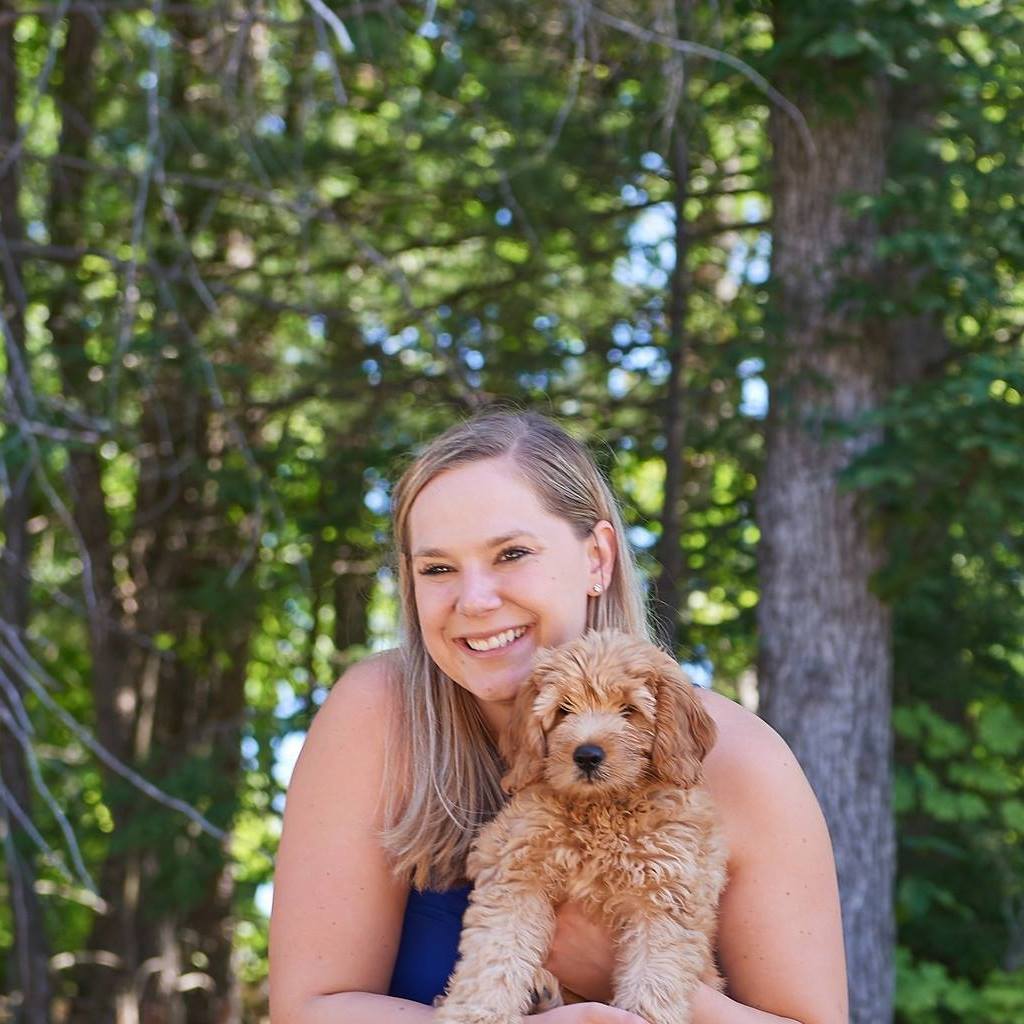By Zachary F. Vasile
Journal Inquirer, Manchester, Conn.
WWR Article Summary (tl;dr) Ashley Kalinauskas is the CEO of “Torigen”, a pharmaceutical startup that originated when she was a graduate student at Notre Dame.
Vernon
When Ashley Kalinauskas was in the 10th grade at Rockville High School in Vernon, she remembers, a thick but apparently little-used compendium of viruses on the shelf of her biology classroom caught her eye.
“I asked the teacher to take the book home and just fell in love with viruses, especially the crazy ones,” said Kalinauskas, now 29 and the CEO of Torigen, a startup pharmaceutical company that makes novel cancer vaccines for pets. “I was always the kid who was hands down going to be a doctor but that moment is when I started learning about epidemiology and it gave me a new focus.”
That enduring fascination with diseases — and how to treat them — propelled the Vernon native to the University of Connecticut, then to the University of Notre Dame in Indiana, and then back to her home state, where she now heads a team of about 10 Torigen employees at UConn’s Cell and Genome Sciences Building in Farmington. The venture operates within the university’s Technology Incubation Program, which makes elite research facilities and business support available to a select group of promising startups.
Torigen produces vaccines designed to stop the recurrence or spread of cancer in animals that have already been diagnosed with a localized form of the life-threatening condition. To date, Kalinauskas said, the treatment has been used on nearly 700 dogs, as well as cats, horses, and even two tigers.
While not legally allowed to make claims about the treatment due to its experimental nature, Kalinauskas said the immunotherapy shots appear to “push out the survival curve” for pets that receive them.
Torigen presents its services as a possible solution to a distressing and ubiquitous problem.
Cancer is a leading cause of death in both cats and dogs, and their owners face few and uniformly unattractive options in getting them help. While chemotherapy and radiation are available to animals, costs can easily run to over $10,000, and owners are understandably reluctant to subject their beloved companions to painful and possibly disabling treatments that could be in vain if the cancer returns.
“Most people don’t want to or can’t afford to put their pets through that,” Kalinauskas said. “What we can offer is a different first-line therapy.”
Torigen receives excised tumors from veterinary clinics at its labs in Farmington and isolates specific biological material that can be used to make a personalized cancer vaccine intended to stimulate the pet’s immune system to seek out and destroy similar cancer cells. The vaccine is administered in a series of shots over several weeks.
The turnaround is three days if specialists have identified the type of cancer they’ve resected and six days if they haven’t, as Torigen needs to send out the growth to a third-party lab to be tested.
As with any treatment, there is no guarantee of a cure, and outcomes largely depend on the type and stage of the cancer involved, with early detection yielding a better long-term prognosis. But for veterinary cancer — where treatment approaches have changed little over the years — immunotherapy still represents a promising new frontier.
Combining science and business
Kalinauskas majored in pathobiology at UConn but also took classes in business, which she said awakened her latent entrepreneurial spirit. The courses convinced her to forgo medical school.
“I didn’t want to make my career on the science lab bench,” she said.
Instead, Kalinauskas enrolled at Notre Dame, which offers a graduate program merging science and business studies. Through that program, she met Mark Suckow, a professor who was conducting research into cancer vaccines.
While human trials are likely years away, Suckow’s work had been successfully applied to veterinary cancer cases, and Kalinauskas began developing a plan to commercialize his inoculation portfolio as her graduate thesis. Her outline went on to win second place in the university’s business plan competition.
In 2013, the partners formed Torigen, with Kalinauskas as CEO and Suckow as chief technology officer. Three years later, they submitted an application to the Technology Incubation Program and won a spot, effectively moving Torigen’s headquarters from South Bend, Indiana to Farmington, where the company shares space in the Cell and Genome Sciences Building with about 25 other startups in various stages of commercial development.
Business has picked up rapidly over the past year.
According to Kalinauskas, Torigen’s service network has expanded to around 100 clinics and continues to grow, and in the coming months the company will publish a major efficacy study, which she believes will raise the company’s profile and pique the interests of more veterinary surgeons and oncologists across the country.
Personal recognition
Torigen’s promising start has won Kalinauskas considerable recognition, making her a well-known figure within the ultra-competitive world of biomedical ventures. Last year, she was hailed as “Entrepreneur of the Year” for Torigen’s sales category by the CT Entrepreneur Awards, and more recently was named to the prestigious “30 Under 30” list compiled by business magazine Forbes.
Kalinauskas has watched several peers within the Technology Incubation Program depart UConn for office complexes of their own, and she believes Torigen will eventually be ready to do the same. Still, she said she wants to keep the company in Connecticut, not only for its high concentration of medical expertise and talent, but because of her personal connection to the state.
“This is home,” she said. “I would love to stay local.”
___
Distributed by Tribune Content Agency, LLC.














































































































































































































































































































































































